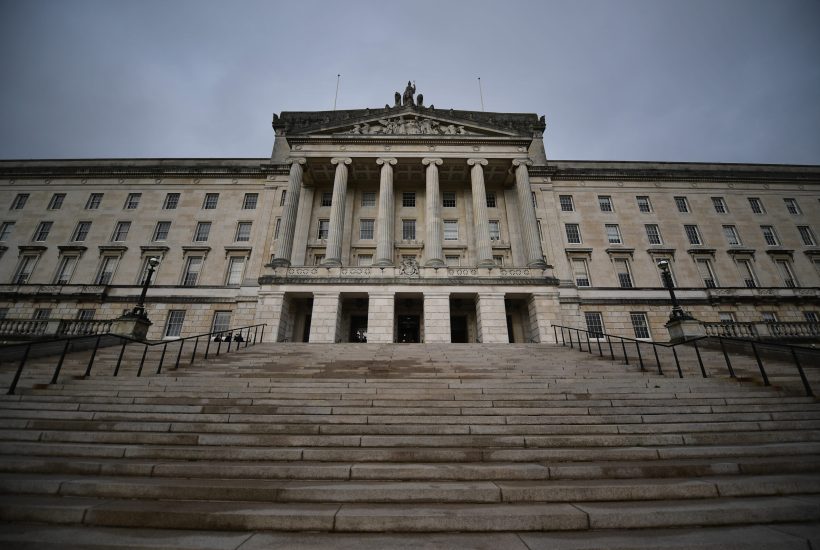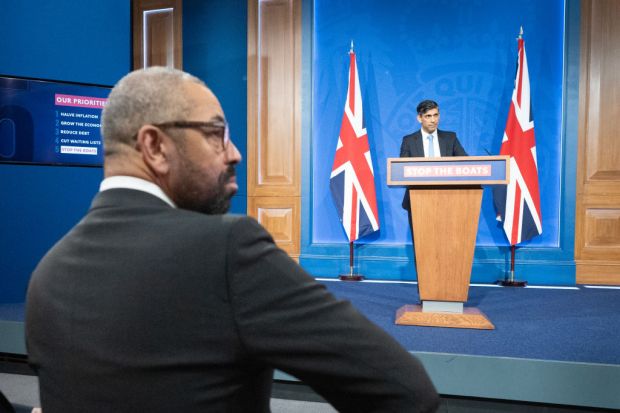Northern Ireland is set for another election. The failure to reboot the province’s power-sharing Executive by the deadline last Friday means Northern Ireland Secretary Chris Heaton-Harris is compelled to call another poll. The current absence of an Executive stems from the Democratic Unionist party’s refusal to join in until substantive progress is made on the Northern Ireland Protocol.
What will an election solve? The frank answer is nothing. Sinn Féin, currently the largest party following an election in May, will be able to present this to nationalists and republicans as yet another chance to give those democracy-denying unionists another mighty kicking on the road to a united Ireland. The DUP and the smaller unionist parties will reheat their calls to rally round the flag in defiance of London, Dublin and Brussels over the Irish Sea Border.
Aside from fans of electoral masochism, nobody will be gratified by what is about to unfold. The Executive will not be re-formed and it is unlikely to make any huge difference to the ongoing wrangling between the UK and EU over the Protocol.
Rightly, people will ask how the blockage gets dislodged. Unfortunately, dysfunction is baked in to the Northern Irish political system. The unsuitability of Stormont’s mandatory coalition has been clear and obvious for some time. The notion that governance can be hobbled at the whim of one bloc over another is ridiculous. If normal politics – in a Northern Irish sense – is ever to break through, this must be done away with.
However, that seems unlikely to happen and given the limited set of tools in their arsenal, it is no surprise that the DUP has decided that refusing to support the institutions is the fastest way to a resolution – after all, it worked for Sinn Féin over Irish language legislation.
Yet for all the ingrained idiosyncrasies of Ulster politics, much of this situation stems from a singular failure of statecraft from the UK government since 2016. Having internalised the Irish and nationalist analysis of the situation, it has delivered via the Protocol a solution which has singularly ignored unionist concerns. This has also been aided and abetted by the DUP cheerleading bad deals without scrutinising them properly.
With the calling of this election in the absence of solutions to the Protocol, no wonder many unionists feel that the Westminster government – specifically the Northern Ireland Office – is not in their corner. It has been thus since the early 1990s, but the sight of Northern Ireland minister Steve Baker apologising to the Republic and the EU earlier this month for failing to respect their ‘legitimate interests’ during the negotiation process was a particularly galling nadir.
Rhetorical unionism aside, it now feels as though the government and Conservative party have, in the case of the Northern Ireland, given up making any real effort to give unionists a helping hand. This, in turn, has condemned unionism to one of its customary angry and angsty spasms. Moderates – offering pragmatic solutions – are being squeezed out in favour of those who shout the loudest and demand a maximalist outcome. Unionism rarely helps itself, but it is being strangled by intransigence from London.
What happens next? Another unsatisfactory result will undoubtedly be delivered amid a background of minimal movement on the Protocol. Nationalists have already been mooting ‘joint authority’ between London and Dublin over Northern Ireland.
The NIO has of course denied this is an option – and indeed, it would go against the ‘spirit’ of the Good Friday Agreement – but expect calls for it to increase following any election. Refusing those calls will be an acid test for the government – those who want to usher in the end of the United Kingdom smell blood, but they have been getting plenty of tacit encouragement from an increasingly passive London government.
Got something to add? Join the discussion and comment below.
Get 10 issues for just $10
Subscribe to The Spectator Australia today for the next 10 magazine issues, plus full online access, for just $10.



















Comments
Don't miss out
Join the conversation with other Spectator Australia readers. Subscribe to leave a comment.
SUBSCRIBEAlready a subscriber? Log in